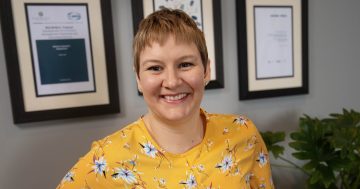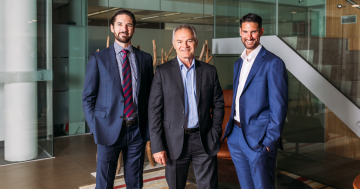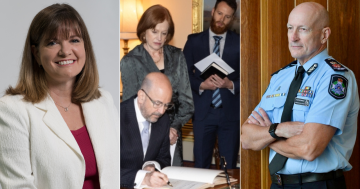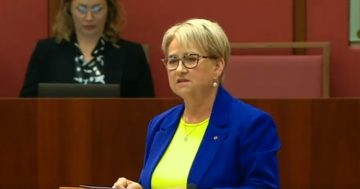
Sometimes, consultation on policy is merely aimed at justifying a decision already made. Image: Sesame.
We hear quite often that a policy or process was ‘based on extensive consultation with the community’ or some such statement.
Consultation can be about truly discovering what is needed or what people want. But it can also be about justifying a decision that has already been made.
Or to give the impression that ‘the government is listening’. It is normally obvious to public servants when consultation is real and when it is just for show.
To be honest, after much experience in being consulted with, I reckon I could tell when the public servant knew it was just for show because they didn’t look as engaged or interested as when the consultations were seeking information to truly inform policy and process.
And, of course, they had to revert to ‘public servant talk’ when challenged about whether the consultations were a joke or not.
Statements such as “the minister has asked us to find out exactly what industry (or small business or whatever) wants” is shorthand for “he minister has already made up her/his mind and we are going through the motions”.
I figured they were embarrassed – especially the public servants with whom I had previously worked on real issues. But what can a public servant do? As they are told, that’s what.
Forgetting about the ‘faux’ consultations, what did the real professional consultations look like?
First, the public servants or servants involved would nearly always look much more interested in the consultations. They were seeking to do something real, they had often been given a broad parameter to work with.
In the consultation, and in any supporting papers, they would make it clear what the issue was and any no-go zones or areas which were out of bounds.
But the fact they were part of a team developing something new was exciting for them and that showed.
It was often a catchy excitement and we all enjoyed the journey.
Some examples included Single Touch Payroll, E-invoicing, Standard Business Reporting, the superannuation clearing house, late payments by big business to small business, the initial stages of developing cyber security processes, the combined business registers, the Regulator Performance Framework, and there were more.
There are also plenty of examples of decisions made with sham or zero consultations. But that list would fill a book.
The truth also is that after the initial joy of getting involved in something new, something needed, something that would be welcomed by the community or by industry, or in my case by small business, then the hard yards would come and vested interests would stick their nasty heads into the fray and make things more difficult than they should be.
But the experienced public servants knew this, and we would all work hard on the first iteration of the process to limit any damage others could do as the process evolved.
The skills needed for successful consultation include the obvious high-level communication skills.
This means hearing what people say and then checking to make sure what was heard was what was meant. This is particularly important when acronyms and technical terms are bandied around.
Clarification is needed, rephrasing of questions is a common technique. Changing those who ask the questions also helps.
There is also the need to target consultations to those who know or those who will be truly impacted by what is proposed.
Too often the big players, whether they be industry associations or unions or the big welfare organisations, will try to grab the focus and provide the information.
But, and have no doubt most experienced public servants understand this, these big powerful groups will represent some type of ideology or will not know what they are talking about when it comes to a particular issue.
Experienced public servants will actively seek comment and input from those whose opinions count. This will involve more work, but they will do it, or attempt to.
When the consultations are just a façade and not real, most experienced public servants will limit their contact just to the big players because, in the end, the decision has been made, and opinions don’t really matter.
They will cater to the egos, sound interested, ooh and ahh where necessary and then move onto the next task.
When the consultations are real, the public servants will probe, provide feedback and use the techniques needed to get the information to inform good policy.
The good consultations will also include teamwork back in the office. The good teams will swap notes, challenge findings if need be and prepare for submitting their findings higher up the chain.
That’s the next problem. Will those higher up decide they know better than the people consulted?
It happens, of course, and the team who consulted and bled good brain cells to get the information and document the results do feel somewhat gutted when some higher being overrides their work and the needs of the community. Sad but true.
Peter Strong has announced his candidacy as an independent in the 2024 ACT election.
Original Article published by Peter Strong on Riotact.











